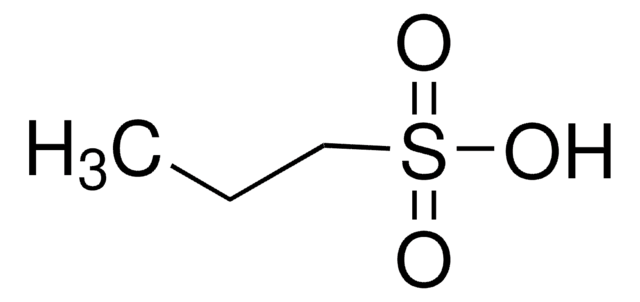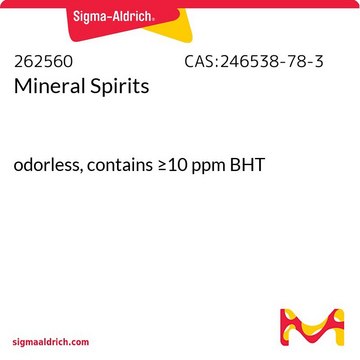12322
Iron(III) chloride solution
purum, 45% FeCl3 basis
Synonyme(s) :
Ferric chloride solution
About This Item
Produits recommandés
Qualité
purum
Forme
liquid
Pertinence de la réaction
reagent type: catalyst
core: iron
Caractéristiques du produit alternatif plus écologique
Catalysis
Learn more about the Principles of Green Chemistry.
sustainability
Greener Alternative Product
Concentration
45% (FeCl3)
Autre catégorie plus écologique
, Aligned
Chaîne SMILES
Cl[Fe](Cl)Cl
InChI
1S/3ClH.Fe/h3*1H;/q;;;+3/p-3
Clé InChI
RBTARNINKXHZNM-UHFFFAOYSA-K
Vous recherchez des produits similaires ? Visite Guide de comparaison des produits
Description générale
Application
- polymerizations
- oxidations
- oxidative couplings
- reductions
- C−C bond formation
- Ferrier rearrangement
- one-pot multicomponent condensations
- Friedel-Crafts reactions
- cyclization′s
- glycosidation
- Prins-type cyclisation
Mention d'avertissement
Danger
Mentions de danger
Classification des risques
Eye Dam. 1 - Met. Corr. 1 - Skin Corr. 1
Code de la classe de stockage
8B - Non-combustible corrosive hazardous materials
Classe de danger pour l'eau (WGK)
WGK 1
Point d'éclair (°F)
Not applicable
Point d'éclair (°C)
Not applicable
Certificats d'analyse (COA)
Recherchez un Certificats d'analyse (COA) en saisissant le numéro de lot du produit. Les numéros de lot figurent sur l'étiquette du produit après les mots "Lot" ou "Batch".
Déjà en possession de ce produit ?
Retrouvez la documentation relative aux produits que vous avez récemment achetés dans la Bibliothèque de documents.
Les clients ont également consulté
Notre équipe de scientifiques dispose d'une expérience dans tous les secteurs de la recherche, notamment en sciences de la vie, science des matériaux, synthèse chimique, chromatographie, analyse et dans de nombreux autres domaines..
Contacter notre Service technique








